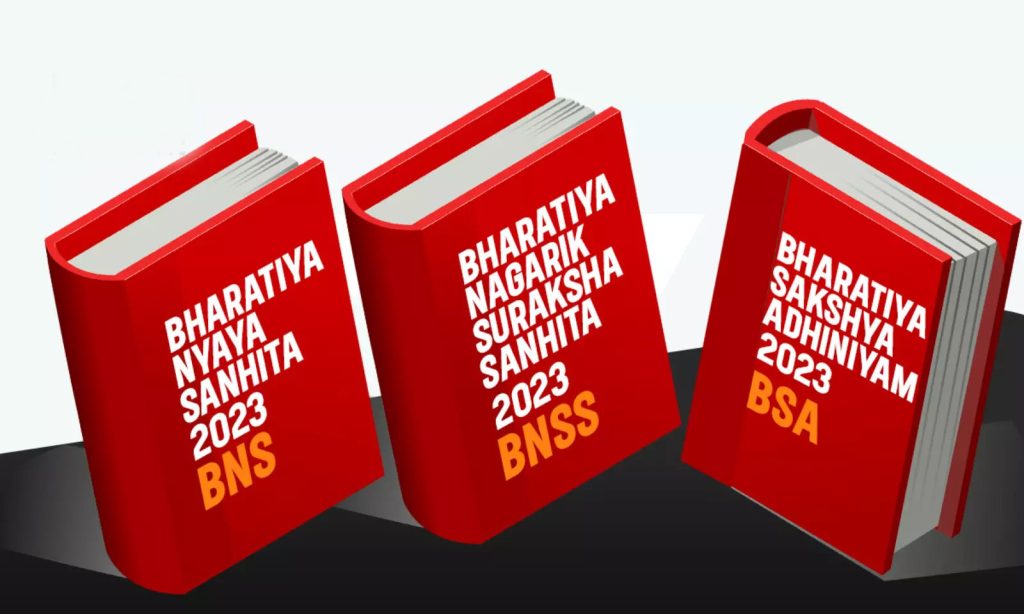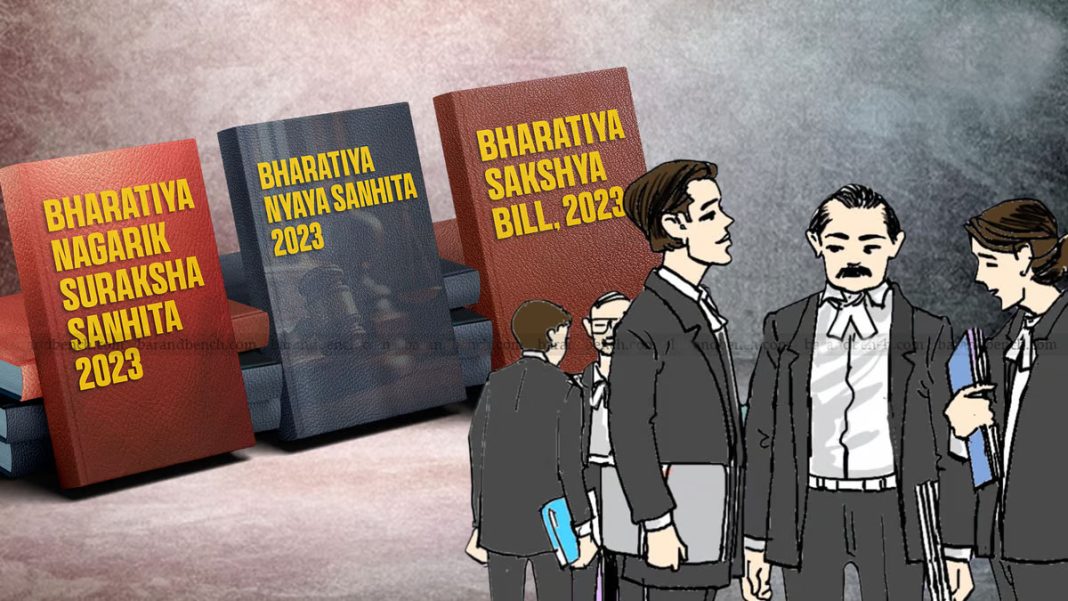Dr. Neelatphal Chanda & Aparna Vats
The importance of literacy became apparent after the National Legal Services Authority’s submission to the Supreme Court that 870 convicts across 18 States and Union Territories wish to file appeals against their convictions upon being informed about free legal aid. According to Prof. Keval J. Kumar, without communication, humans will not be aware of what is safe or unsafe, hated or loved, or simply what emotions to feel. Similarly, democracy can be actualized if citizens have the agency to exercise their rights fully. But, how does one claim what they are unsure they possess?
A chair cannot stand on three legs, and democracy cannot thrive without its fourth pillar. For this reason, the role of the media is of cardinal importance against the background of the Parliament enacting the Bharatiya Nyaya Sanhita, the Bharatiya Nagarik Suraksha Sanhita, and the Bharatiya Sakshya Adhiniyam, which came into effect on July 1, 2024. These landmark legislations uproot India’s legal colonial heritage concerning the three criminal laws – the Indian Penal Code of 1860, the Civil Procedure Code of 1973, and the Indian Evidence Act of 1876.
The Prime Minister’s call to put “citizen first, dignity first, and justice first” through these laws will depend on how easily the implementation can be done. A resolution to bring about a revolution without making provisions to maximize the outreach of its potential benefits ends up as an unexecuted recommendation. The new criminal laws face challenges from their very inception, preceded by no prior plan of action to disdisseminate the required legal knowledge to truly adopt, enact, and execute these reforms, the country needs help categorizing this move as readiness or restlessness.
In the days leading up to the formal enactment, the courts became busy holding conferences to better understand these laws. The judges spent their vacations studying and revisiting the memories of their college years, and institutions deliberated upon strategies to prevent their curriculums from becoming obsolete. The Indian masses were left bewildered, and there remains a large segment of our population which is unenlightened and shall remain so if expedient steps are not undertaken.

The BNS consolidates the criminal laws into 358 sections and 20 chapters to simplify, expedite, and solidify India’s criminal justice system. It deletes 19 sections of the IPC, adds 20 new offences, and increases the punishment of imprisonment for 33 offences. New offences include abetment outside India for offences in India, sexual intercourse by employing deceitful means, mob lynching, etc. On the other hand, major deletions reinforce recent landmark judgments of the Supreme Court, such as IPC Section 124A (sedition), which is now replaced with Section 152 (Acts endangering sovereignty, unity, and integrity of India), Section 377 (sexual intercourse against the order of nature), and Section 497 (adultery).
Two significant reforms are making laws gender-neutral, such as penalizing the procurement of any child below the age of 18 years and granting community service to supplement or substitute punishment in instances involving misconduct in public by a drunken person, defamation, etc.
Hence, these new provisions aim to democratize, decentralize, and modernize the Indian criminal justice system while instituting regimentation and reformation as the core values.
Indian criminal jurisprudence believes that crimes and criminals are not homogeneous, and to simplify administration, the judiciary has adopted certain yardsticks within the boundaries of legislation, leading to landmark judgments. In Sunil Batra vs Delhi Administration (1978), the apex court rejected the ‘hands-off’ doctrine or the ‘iron curtain’ approach to justice to rule that courts remain the guardians of the fundamental rights of those imprisoned. However, they may suffer shrinkage necessitated by incarceration.
The Constitution enshrines the right to free and fair trials and protection concerning conviction of offences as fundamental rights irrespective of citizenship. Article 39A directs the State to provide free legal aid and assistance to the poor. Moreover, the CrPC enshrined several protective provisions concerning arrest without a warrant, the mode of arrest, the right to free legal aid, etc. The role of the media in assisting the legal machinery by using the potency of its accessibility is unquestioned. It can ensure the due process of law by informing the masses of their rights and deterring officials from violating them. This will be of utmost importance while implementing the new provisions of the BNSS and BSA, which include bail for an accused who has been detained for half the maximum imprisonment for the offence, mandated forensic investigation for offences punishable with seven years of imprisonment or more by the forensic expert at the crime scene which is to be recorded on an electric device, medical examination by a registered medical practitioner on the request of at least a sub-inspector level police officer and ensuring that the report is delivered within seven days in the offence of rape.
The responsibility to deconstruct, decentralize, and disseminate information regarding these enactments lies upon the media. As the global trust in news media declines and the gap between attention and retention widens, this shall require a holistic approach. The role of social media cannot be ignored in India where, according to the 2024 Digital News Report by Reuters Institute, 54 percent of respondents relied on YouTube for news. Still, it is tough to address that a substantial fraction of our population does not have access to it and relies on traditional news media sources.
Conclusively, the new enactments envision a robust justice delivery system with specified timelines for giving judgments, survivor-friendly policies, and adequate opportunities for reformation. But it is essential to translate them into a language that will reach the masses and empower them to avail themselves of it. Actual participatory governance shall now depend upon whether and how the media as an institution initiates a dialogue through political education while preventing legislative jargon from disallowing true democratic governance.




